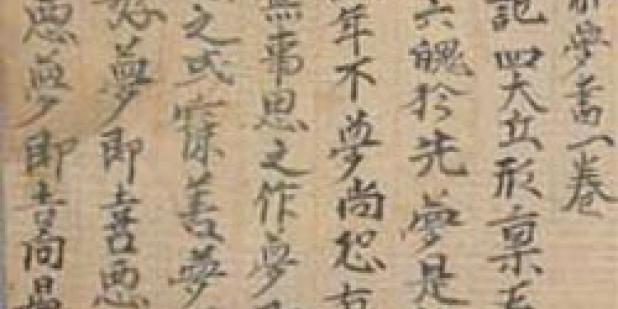Happy Lunar New Year from the USC US-China Institute!
The Dreamscape of Early Medieval China
UC Berkeley's Center for Chinese Studies presents a talk by Robert Company on the views on dreams in ancient China.
Where

Robert Campany, Religion and East Asian Languages and Cultures, University of Southern California
Robert Ashmore, East Asian Languages and Cultures, UC Berkeley, discussant
In early medieval times, there was not one unitary Chinese view—or, for that matter, one unitary Daoist or Buddhist, or elite or popular, view—of what dreams are, how they signify, and what, if anything, they portend. Rather, there was an array of coexisting, sometimes competing views on these matters, each view performing certain functions and each mobilized in certain practices. In my talk I will offer a preliminary mapping of this complex, multidimensional dreamscape of early medieval China. The mapping is based on a study of certain genres of documents with an eye to questions such as these: What was the perceived relation between the dreamer and what is dreamed? How did dreams carry meaning? How were they interpreted, and by whom? To what uses were dreams put? With what other sorts of assumptions and arguments were assumptions and arguments about dreams intertwined?
Featured Articles
We note the passing of many prominent individuals who played some role in U.S.-China affairs, whether in politics, economics or in helping people in one place understand the other.
Events
Ying Zhu looks at new developments for Chinese and global streaming services.
David Zweig examines China's talent recruitment efforts, particularly towards those scientists and engineers who left China for further study. U.S. universities, labs and companies have long brought in talent from China. Are such people still welcome?






